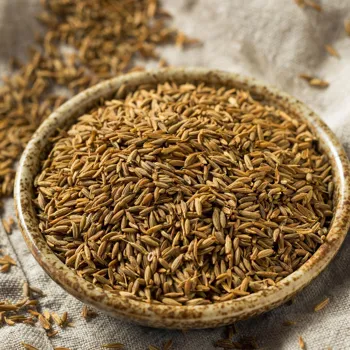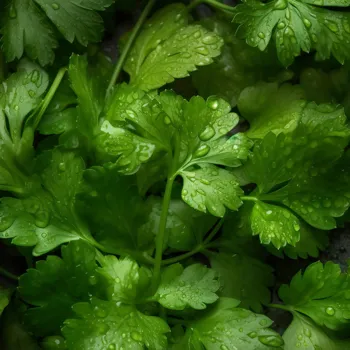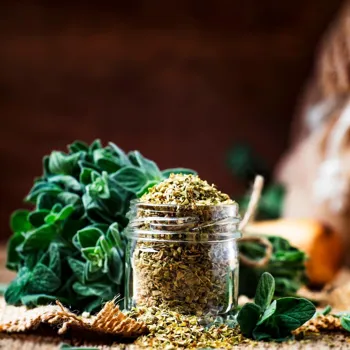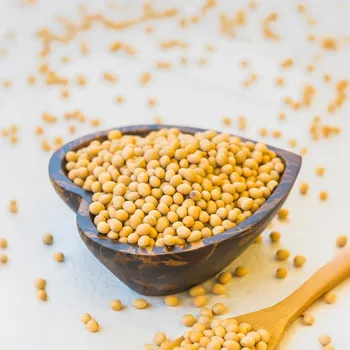Unveil the essence of Indian cuisine with our guide to 10 essential spices! Dive into a world of flavor and tradition
India, the land of vibrant colours and diverse cultures, is also famously known as the "Land
of Spices." For centuries, spices have been the heart and soul of Indian cuisine. They're not just about adding flavour; they're about creating an experience.
A pinch of this, a dash of that, and suddenly, an ordinary dish transforms into something extraordinary. But with so many spices available, knowing which ones are essential can be a bit daunting. Fear not! We've curated a list of 10 must-have spices that should be staples in every Indian kitchen.
These spices aren't just ingredients; they're the building blocks of flavour, health, and tradition. Each spice has its own unique story to tell, its own distinct aroma and taste that can transport you to different corners of India.
So, let's embark on a flavourful journey and explore these essential spices that will elevate your cooking to new heights! Get ready to unlock the secrets of Indian cuisine, one spice at a time.
Turmeric: A golden spice with powerful health benefits and versatile culinary uses
The first spice on our list is turmeric, or "haldi" as it's lovingly called. This golden spice is revered not just for its vibrant colour but also for its incredible health benefits. Turmeric contains curcumin, a powerful antioxidant with anti-inflammatory properties.
It's believed to boost immunity, improve digestion, and even protect against certain diseases. In the kitchen, turmeric is a versatile workhorse. It adds a warm, earthy flavour and a beautiful golden hue to curries, vegetables, and rice dishes.
It's also a key ingredient in many traditional Ayurvedic remedies. From a simple dal to a elaborate vegetable curry, turmeric is a essential part of every Indian meal. A pinch of turmeric can make a difference in the taste of the dish.
You can even add turmeric to milk with honey if you catch a cold.
Cumin enhances Indian dishes with its warm, earthy flavor
Next up is cumin, known in Hindi as "jeera." These tiny seeds pack a powerful punch of flavour. Cumin has a warm, earthy, and slightly bitter taste that adds depth and complexity to countless Indian dishes. It's also an excellent source of iron and aids in digestion.

Cumin seeds are typically toasted or tempered in oil before being added to dishes, which releases their aroma and enhances their flavour. Ground cumin is also widely used in spice blends and rubs.
From flavouring raitas and chutneys to adding a smoky note to dals and vegetable dishes, cumin is a must-have spice for any Indian cook. Cumin enhances the flavor of a dish. Roasted or ground cumin can be used to add a good aroma and taste. Enjoy your meal by adding Jeera to it.
So, remember to add this spice in the list.
Coriander, an essential spice for vibrant flavor in cooking
Coriander, or "dhania," is another essential spice that comes in two forms: seeds and fresh leaves. Coriander seeds have a mild, citrusy, and slightly sweet flavour. They are typically roasted and ground before being used in cooking.

Coriander powder is a key ingredient in many Indian curries and spice blends. Fresh coriander leaves, on the other hand, add a bright, fresh flavour to dishes. They're often used as a garnish to add a touch of vibrancy and flavour.
Both coriander seeds and leaves are rich in vitamins and antioxidants. From flavouring sambar and rasam to garnishing biryanis and salads, coriander is a versatile spice that adds a unique flavour to any dish. So, having coriander is essential in cooking.
Remember to add this versatile spice in your kitchen.
Coriander seeds and leaves add distinct flavors to dishes
Coriander, a versatile spice, exists in two forms: seeds and fresh leaves, each offering a distinct flavour. Coriander seeds, with their mild, citrusy, and slightly sweet taste, are typically roasted and ground before being incorporated into dishes.

Coriander powder is a fundamental component in numerous Indian curries and spice blends, infusing them with its subtle yet essential flavour profile. On the other hand, fresh coriander leaves provide a bright, fresh flavour, often used as a garnish to add a touch of vibrancy and flavour to meals.
Both coriander seeds and leaves are rich in vitamins and antioxidants, making them a healthy and flavorful addition to any dish. Whether flavouring sambar and rasam or garnishing biryanis and salads, coriander enhances the overall culinary experience.
Mustard seeds enhance Indian cuisine with their pungent flavor
Mustard seeds, known as "rai" in Hindi, are tiny but mighty spices that add a pungent and nutty flavour to Indian cuisine. There are three main types of mustard seeds: black, brown, and yellow. Black mustard seeds have the strongest flavour, while yellow mustard seeds are the mildest.

Mustard seeds are typically tempered in hot oil until they pop, which releases their flavour and aroma. They are commonly used in South Indian dishes like sambar and rasam, as well as in pickles and chutneys. Mustard seeds are also a good source of minerals like selenium and magnesium.
From adding a flavour to tadkas (tempering) to flavouring vegetable dishes and pickles, mustard seeds are a must-have spice for adding a zing to your cooking. You can use all three versions based on their flavours. Indian cuisine relies heavily on this spice.
Ginger and garlic: essential flavor enhancers in Indian cuisine
Moving on to ginger and garlic, these two aromatic ingredients are more than just spices; they're flavour enhancers that form the base of many Indian dishes. Ginger, known as "adrak," has a warm, spicy, and slightly sweet flavour. Garlic, or "lehsun," has a pungent and savoury flavour.
Both ginger and garlic have numerous health benefits, including boosting immunity, aiding in digestion, and reducing inflammation. They are typically grated, minced, or made into a paste before being added to dishes.
From flavouring curries and dals to marinating meats and vegetables, ginger and garlic are essential ingredients in every Indian kitchen. So, remember to add both ginger and garlic to ensure great taste of your cooking. Without these spices, your dish might not taste as good as it should.
AI Generated Content. Glance/InMobi shall have no liability for the content














